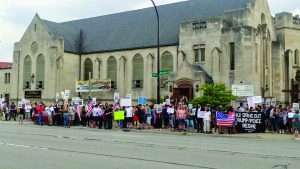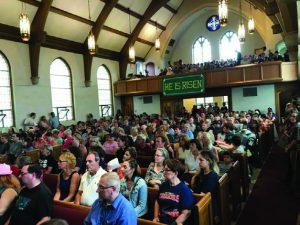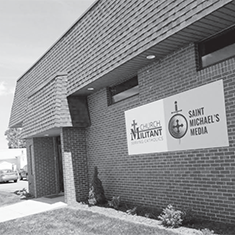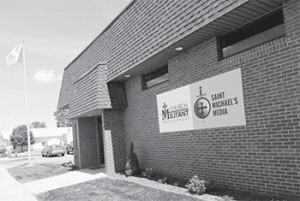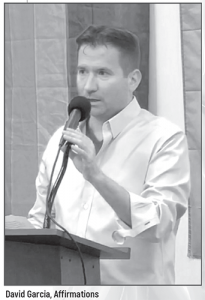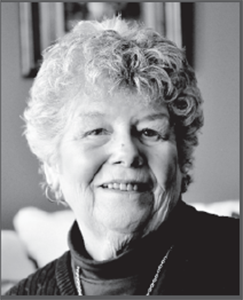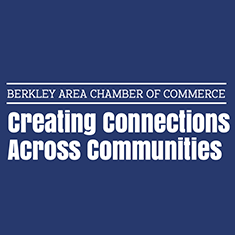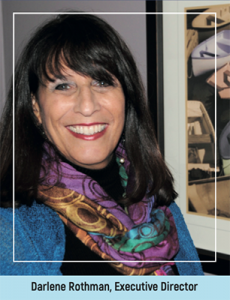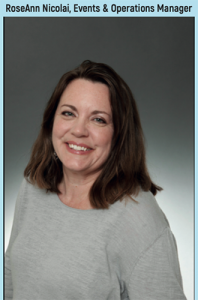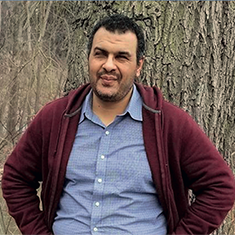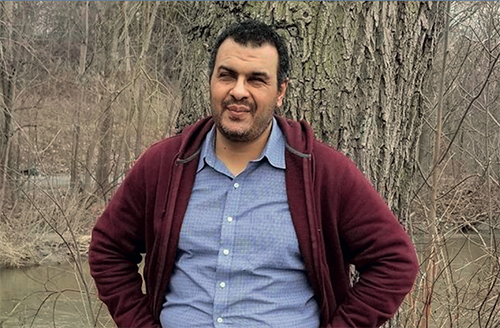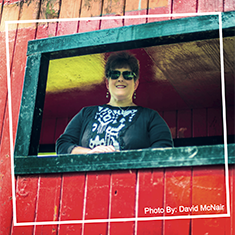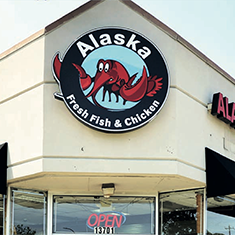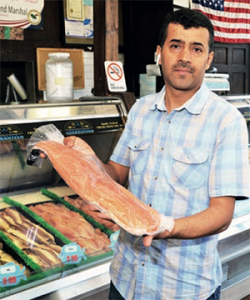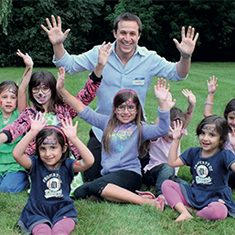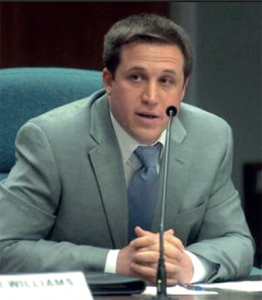By Rebecca Hammond
IF YOU’RE SEARCHING OUT INFORMATION ON NATIVE PLANTS RIGHT NOW, it might be because you’re interested in pollinators like butterflies and bees, especially monarchs. Fifteen years or so ago, however, local experts began doing native plant presentations at places like Ferndale’s Kulick Center, and the main focus was the benefits to waterways because of the ability native plants have to hold excess storm water. Less storm water pouring down drains, less pollutants riding along, means cleaner Great Lakes. Nothing much was mentioned in those presentations about bees and butterflies except as an interesting side effect. Neither did they mention flooded basements, those still being a rarity.
If only those experts had waited a couple of years! Soon after this push to go native, basements in our local communities began to flood. And flood, then flood some more. Some homeowners now have flooded basements a couple of times a year. Heavier and more frequent rainfalls are the culprit, but the means by which water gets into our homes varies as much as our soil, plants, construction materials, and methods have varied.
Why do basements flood? Utilities Kingston, Ontario blames “…seepage or flow through the walls or foundation floor, from surface water sources, or by a sanitary or storm sewer backup.” This Old House says, “Even a small storm can trigger a deluge… a house with a 1,500 squarefoot roof sheds 1,000 gallons of water for every inch of falling rain. Once the water accumulates around your foundation, it works its way inside through cracks, joints, and porous material.” A number of sites mention gutters and downspouts sending water down walls instead of away from the house. Most mention nearby concrete and slope of landscape. Most mention soil composition, and many mention what’s planted near that basement.
Cleanwater.com says “Plants are the first line of defense when it comes to erosion control and stormwater management…The extensive and deep root systems of native plants slow down runoff.” Those roots hold water in the soil. Grass roots might be only two-to-four inches deep, but Ferndale’s city flower, Purple Coneflower, has roots that can penetrate to five feet, every inch of those roots able to hold water. Texas Native Plants states that those longer roots provide “flood mitigation services” and that they also filter out pollution.
IF YOU’RE NEW TO MICHIGAN OR GARDENING you might be wondering what native plants even are. They’re just plants that were here before people like us were. There’s quite a variety, and something for everyone: tall sun-lovers like Coneflower and Black-Eyed Susan (loved by birds like gold-finches as much as butterflies); shorter ones like Canada Anemone that not only grow in shade, but bloom in it; specific host plants like Milk-weed, the only plant monarchs will lay eggs on or their caterpillars will eat. There are even some adaptees that fit in quite well, like Queen Anne’s Lace (mine is crawling with swallowtail caterpillars) or Mullein, which may not have the prettiest flower stalk in the world but you won’t mind when you see downy woodpeckers land on it for the seeds. Their long roots hold water for them, as well as for us. These plants don’t need much extra from the grower.
Turf grass, on the other hand, has much shorter roots in comparison, but that’s not the only issue. Remember Michigan master gardener Jerry Baker? He promoted a formula for lawns that included things like beer and ammonia but also dish detergent, which allowed everything else to work for one reason: turf is water-repellent. Detergent breaks the surface tension and allows water to soak in.
Yes, water-repellent. Turf websites, especially golf course sites, call it that, and so promote the use of chemical surfactants to keep water on grass. Some sites actually call grass “hydrophobic.” Thatch is the main reason for this, and the more you fertilize lawn the more thatch it likely has. It occurs when plants build up more decaying matter than nature can break down. Illinois State Extension not only advises against over-fertilizing, they advise against overwatering!
I TRIED AN EXPERIMENT WITH A FEW GALLONS OF RAIN-BARREL WATER. I poured water at intervals onto turf, irises, creeping phlox, and lastly on a patch of natives that included goldenrod and black-eyed susans. All were a few inches from concrete, and slightly uphill from it. I expected water to run off quickly in all four places at first, and it did. But as I revisited each spot, one thing stood out: runoff never slowed from the turf. The irises and surrounding soil slowed it by the second pour. The natives? I had a hard time even getting water onto the sidewalk, as the less-covered soil that surrounds them is very absorbent.
The creeping phlox was the biggest surprise and disappointment because, although it’s not native, I like it and assumed it would allow rainwater easy passage. But it was as bad as grass, or worse. I waited about a half hour and repeated the whole process a few times and, although runoff from the turf maybe slowed a bit, it wasn’t much. There was no more runoff from the irises, and very little from the natives. The phlox remained a sieve.
So where does all this water go when it runs off? Into the streets, and down our storm drains. These drains have become controversial here in Ferndale. Some folks think we should clean them off, letting water flow rapidly, and some think slow is better; don’t clear them. Both camps hope that speed or lack thereof is what keeps that storm water out of basements. (It’s worth noting that blowing grass clippings and the like into the street is actually not legal.)
Since Ann Arbor is a leader in things environmental, I went to their website. It not only says, “Cleaning out the storm drain on your street is a simple way to help keep the Huron River clean and prevent flooding in your neighborhood,” they also have a downloadable map of storm drains with a checklist for found objects. Residents can explore their neighborhoods with kids or friends and search out storm drains and help “the neighborhood and the environment.” They can even adopt a specific storm drain.
The site also points out that, “Whenever there’s a heavy rainfall, or even just a little rain, a lot of pollution can end up being washed off the streets and into the Huron River. You can help prevent that simply by reducing the amount of rainwater that flows off your property from sidewalks, driveways, roofs, etc.” Options they suggest in addition to native plants: rain barrels and rain gardens, which can be large depressions filled with native plants, or a few lower places here and there. Residents can earn stormwater credits for these improvements. A person wanting to go bigger can install cisterns or dry wells, both designed to hold excess rainwater.
IF YOU WANT TO SEE SOME CLOSER EXAMPLES of rain gardens, check out the new ones along 9 Mile Road in Oak Park between Rosewood and Scotia. There are big depressions filled with things like swamp milkweed and Joe Pye weed, along the south side’s new bike path. Most of our yards are actually reverse rain gardens, by the way, sloping up away from sidewalks and streets, setting up more flooding.
Whether basements flood because water goes down storm drains too quickly or too slowly, keeping water out of our streets would help keep it out of our basements. Deep roots, less cement, and rain gardens would help. The City could consider once again allowing gravel driveways or adding more pervious pavement.
No matter how it gets there, water pouring off our lawns and streets and into our basements seems the ultimate exercise in futility and frustration. A local waterproofing company told me that no two basements are alike. Sealing walls, repairing cracks, adding sump pumps and stand pipes are all options. Keeping the water away to begin with might be a good starting point.
And consider this: if you or your neighbors use lawn chemicals, that storm water runoff will contain those chemicals. And so will your flooded basement.
“2014: The yard had no plants other than grass; major flooding in the basement. 2016: We move in, regrade the perimeter of the house, plants galore – basement does not flood.”
– Rachel Anne Engel, Ferndale
“No lawn for 20 years now. Basement never floods. If the backyard does it’s only on paver walk, plus it’s gone in 20 minutes. I never get standing water.”
– Dean Smith, Ferndale
“Forty years, no lawn other than 30 feet of devil’s strip. Only water was the ginormous flood six years ago when every house was flooded. Thirsty trees, shrubs, and plantings take up all the water that comes down, and our house is within 15 feet of a Red Run tributary.”
– Robert Lebow, Huntington Woods
“When I moved to Ferndale 20 years ago, the previous owner had used large concrete patio blocks around the perimeter of the house. There was a lawn in the front yard and back yard. Had water in basement on west side of house once. 18 years ago I took away all lawn in the front yard and most in the back yard, native plantings, some herbs and veggies, and I have never had water in my basement and I rarely mow the back patch of grass that remains for the family dog, which is away from the house anyway.”
– Catherine Jing Rehe, Ferndale
“90 percent garden plus 2 rain gardens. Only flooded once when sump pump died”
– Lauren Yellen, Ferndale
“No grass at all, 25’x25′ mostly edible garden, mulch! Has not flooded. I do seal the walls every few years. No sump pump, and snake the drains twice a year. My weeds/volunteers are morning glories, milkweed, mint, tomatoes and marigolds. Love my yard!!!”
– Merry Gundy, Ferndale
“We’ve never flooded and I give all the credit to our giant Eastern Cottonwood. This year I did get rid of most of my front yard grass and planted natives.”
– Elissa Agans
“Ours leaks and it did flood (seven inches) in 2014. We need a french drain and our problem will be solved. We have more grass than cement, lots of flower beds.”
– Jacquelyn Marie
“I live in Canton, a couple houses over from a creek, and we replaced most of our front yard with native woodland plants in 2019. We do not have flooding in our basement.”
– Jackie Fleishcher Best
“My basement only gets a water seepage when it’s a downpour or steady rain over several hours. Only one wall leaks via an opening near the chimney. Thankfully, the water goes straight to a drain. I have grass and plants and raised beds in my yard. The back area of my yard is where the downward slope is. My neighbor’s yard gets deep enough for ducks and birds to swim and play!”
– Pamela Bentley Callaway
“My basement has never flooded except for the sewer debacle in 2014. I have no grass – all perennial gardens and maybe a few native plants – but certainly not the majority”
– Barbara Harte, Huntington Woods
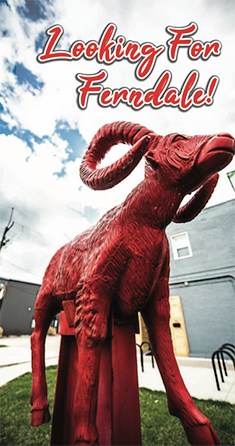 I am a little protective and curmudgeon-y about Ferndale these days, baffled by the new parking structure and the plan for even more parking. Mixed-use space? I’m all about collaboration, but what’s it going to do to individual businesses? And all those dispensaries. They’re fine, but geez. Do we need so many?
I am a little protective and curmudgeon-y about Ferndale these days, baffled by the new parking structure and the plan for even more parking. Mixed-use space? I’m all about collaboration, but what’s it going to do to individual businesses? And all those dispensaries. They’re fine, but geez. Do we need so many?




